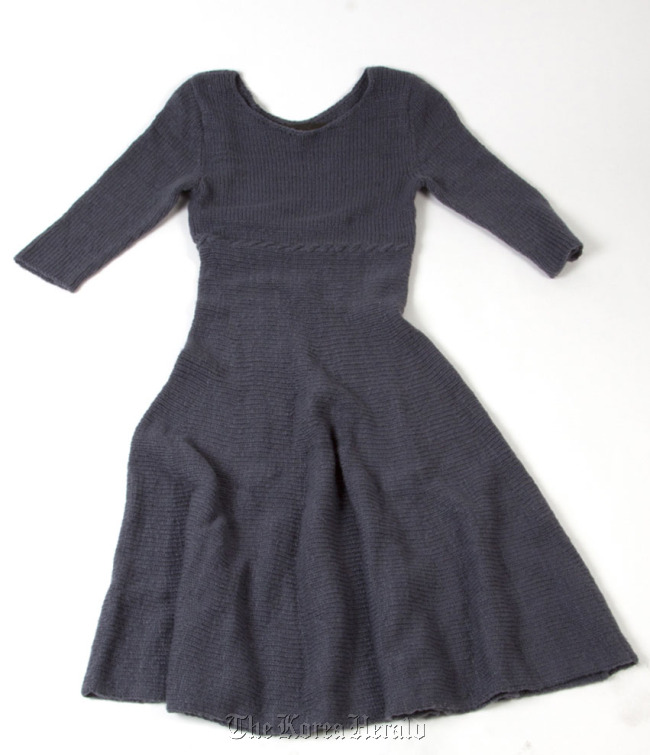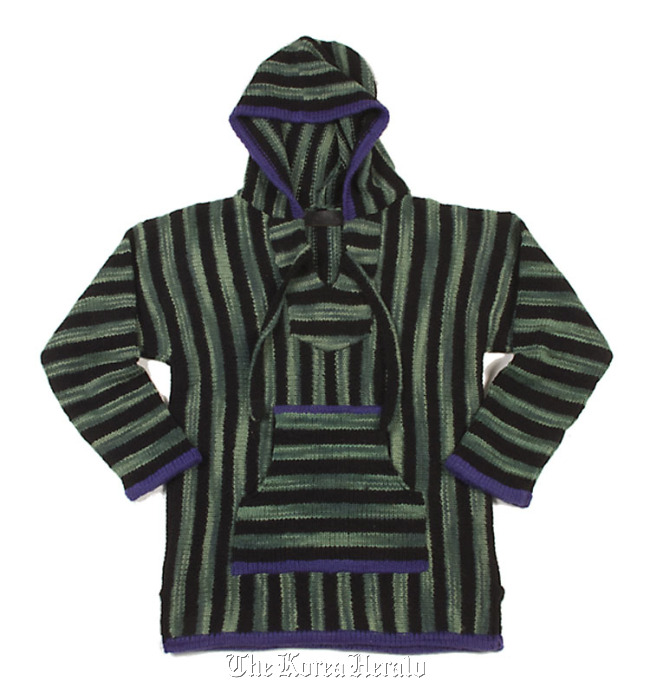 |
The Sunshine Sue Dress is from The Elder Statesman. Price: $1,245. (Los Angeles Times/MCT) |
LOS ANGELES ― When Greg Chait won the CFDA/Vogue Fashion Fund Award in New York City last month, the man behind the Elder Statesman line of ultra-luxury cashmere knits ― think $5,525 blankets, $1,890 belted cardigan sweaters and $380 ski caps ― was practically unknown outside the fashion industry. And he was only slightly better known within it.
“That’s because I don’t talk unless I have something to say,” Chait says, sitting behind the wooden table that doubles as a desk in his tiny West Hollywood office/atelier ― the exact location of which he’d rather not divulge. “I want the stuff to speak for itself.”
There are other reasons too. Among them are the label’s relatively small distribution ― it’s carried by only about 60 retail accounts worldwide ― and the fact that the 5-year-old brand is based in Los Angeles, far from New York City’s fashion fishbowl.
In many ways, the Elder Statesman is the kind of brand that could only come from L.A. That’s not just because this is the city that popularized women’s cashmere track suits for everyday wear and where dudes can be seen rocking knit caps in 90-degree weather. It’s also because it’s similar to high-end craftsy/cottagey niche labels such as Rodarte, George Esquivel and Gregory Parkinson that have come out of Los Angeles the last few years.
 |
Lavender and Natural Baja / Emerald and Black Baja is from The Elder Statesman. Price: $2,100. (Los Angeles Times/MCT) |
The biggest reason Chait and the Elder Statesman have flown well below the radar has to do with the collection itself ― a range of high-end, artisanal slouchwear that includes things like slubby, striped Baja hoodies crafted from hand-spun cashmere, plaid pashmina button-front workshirts, chunky knit Rasta caps, clingy long-sleeve T-shirts, simple sweater dresses and pullovers with intarsia palm tree designs.
All of it is made in the U.S. ― mostly by a network of 20 to 30 hand knitters clustered in the L.A. area ― from super-soft, hand-spun cashmere yarns that hail from far-flung places including Mongolia, India, Italy, Scotland and Peru. These are the kind of clothes that feel like a million bucks on the body, look like a modest 25 to 100 bucks from across the room but will easily set you back a month’s rent.
It’s such an understated approach to high-end covetables that calling it “stealth luxury” hardly does it justice. What Chait’s created is nothing short of “black ops luxe.”
Steven Kolb, chief executive of the Council of Fashion Designers of America (and one of the Fashion Fund judges) says that’s part of the brand’s appeal.
“It’s a basic luxury item that, on first glance, could be anything,” he says. “But when you take a closer look, you touch it, put it on, you appreciate the level of quality that went into it. That (the pieces) look like basics from a distance but have that subtle richness and specialness is what I think makes it appealing.”
Now, thanks to winning the CFDA/Vogue Fashion Fund Award, Chait is firmly on the radar. The award program, now in its ninth year, was created by the Council of Fashion Designers of America and Vogue magazine to incubate emerging talent, and its top honor includes a $300,000 cash prize and a yearlong industry mentorship. In addition, two runners-up (this year they were New York-based shoe designer Tabitha Simmons and L.A. jewelry designer Jennifer Meyer Maguire) each receive $100,000 and a year of business mentoring.
Beyond affording the opportunity to take a brand to the next level, the award brings with it all kinds of media exposure (the pages of Vogue magazine for example) and additional retail opportunities, such as the new CFDA/Vogue Fashion Fund pop-up shops that are slated to open in five Nordstrom stores in February.
Even as his business has grown to include some 60 retail accounts across the globe, including luxury boutiques stockists such as Louis Boston, Hostem in London and Boon the Shop in Seoul, Chait says he’s worked hard to maintain stealth status and exclusivity. “I’ve been very careful about my distribution, I’m still just in Maxfield (in L.A) and L’Eclaireur in Paris, and I have just one online retailer ― Mr. Porter for men and Net-a-Porter for women.”
In November 2011, Chait added a smaller, more affordable capsule collection to the mix: an assortment of fingerless gloves, knit caps, scarves and zip-front hoodies that sells for between $150 and $695 (due, in part to substituting baby alpaca for the Mongolian cashmere and having the pieces hand-knit in Peru instead of the U.S.). That line, called Tyro by tes (“tyro” is a Latin word that means novice or beginner, and the “tes” is short for “the Elder Statesman”) sells exclusively through Barneys New York.
But don’t expect Chait to make any radical departures from his super-stealth, slow-growth, ultra-luxe approach.
“I’m going to continue on the trajectory I’d already planned,” he says. “This gives me a little more confidence, it creates a little more affirmation in the marketplace and it gives me the right opportunity to tell my story ... (but) I like the allure of a brand where you don’t really know (much about it). I like that quietness.”
By Adam Tschorn
(Los Angeles Times)
(MCT Information Services)






![[Exclusive] Hyundai Mobis eyes closer ties with BYD](http://res.heraldm.com/phpwas/restmb_idxmake.php?idx=644&simg=/content/image/2024/11/25/20241125050044_0.jpg)

![[Herald Review] 'Gangnam B-Side' combines social realism with masterful suspense, performance](http://res.heraldm.com/phpwas/restmb_idxmake.php?idx=644&simg=/content/image/2024/11/25/20241125050072_0.jpg)
